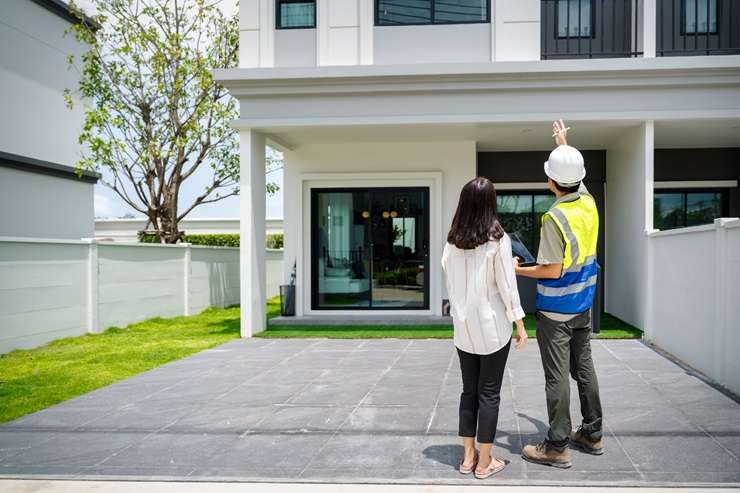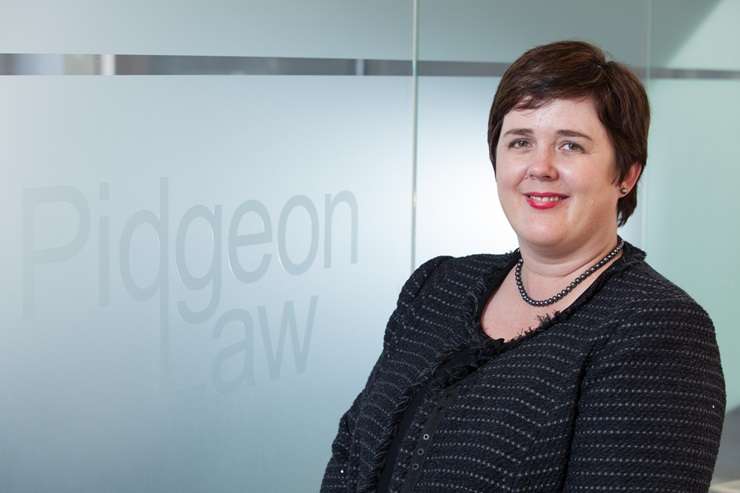An Auckland real estate agent has sounded the alarm on builder reports, telling OneRoof that some buyers are currently basing their decisions on sub-standard or overly zealous inspections.
The agent, who wished to remain anonymous, said builder reports varied in quality, and sometimes it was hard to get a consensus view on the integrity of a home.
He told OneRoof one of his listings had seen 11 inspection reports, and each report contained a different opinion about the property.
He believed around 50% of deals in the current market had been torpedoed by pre-purchase reports, with spooked buyers walking away over what could be minor issues.
Start your property search
The agent said the industry should be regulated, and he’s not alone. Spokespeople for official building inspection organisations agreed when contacted by OneRoof.
Three bodies provide training and registration for inspectors: the New Zealand Institute of Building Surveyors, the New Zealand Institute of Building Inspectors and the Building Officials Institute of New Zealand. But many more inspection companies exist outside of these organisations.
Discover more:
- Mortgagee sale of penthouse apartments in former leaky building
- Route 66 founder's Northland lodge sells for more than $4.7m
- Revealed: The Kiwi homes earning more than a top CEO's pay
The Auckland agent called for the inspection process to be standardised, citing the high cost of obtaining a report – currently around the $1000 mark.
He felt issues were sometimes “overcooked” by inspectors, sometimes to cover themselves. “The builder always says, ‘Oh, there’s something wrong with the roof, the roof needs to be replaced. There’s something wrong with the foundations. There’s high moisture’. There are always the same issues.
“A lot of buyers say to me ‘I haven’t bought a house but I’ve already spent $10K on the builder’s report’.”
OneRoof spoke to several other agents about inspection reports. While they always recommend buyers get one before they buy, they too had quality concerns, saying the language in some reports was vague or unnecessarily alarming.
Ray White Remuera agent Ben Ryken urged buyers to attend the inspection and follow it up with a conversation with the inspector because sometimes a written report could be “quite fierce” in its wording.
“I’ve had deals recently fall over based on reports that have sounded a bit scary and could have sounded a bit friendlier, I guess, for the purchasers, or could have been put into better context for the potential purchasers.”
He had been involved recently in deals impacted by a loose down pipe and incorrect fixtures attaching a hot water cylinder. “You know, jobs that are quite minor, we believe, in terms of getting someone there and fixing it.”
Another agent, Diego Traglia, from Harcourts North West, said he recently had a problem identified in two reports – but the inspectors were poles apart on how much it would cost to fix the problem.

Harcourts agent Diego Traglia: “I think a bit of context would go a long way." Photo / Fiona Goodall
Another report for one of his listings said the roof would need replacing “at some stage”. Traglia said this was too vague because every house roof will need replacing, even new ones.
“I think a bit of context would go a long way because a nervous buyer would look at it and go, ‘The house needs a new roof’. Well, no, it doesn’t,” he said.
Guidelines across the industry would be beneficial, he said.
Darryl August, president of the New Zealand Institute of Building Surveyors, agreed the industry should be regulated. “It does need to improve – it definitely needs to improve.”
He said buyers needed to realise the difference between a builder doing a report and a registered building surveyor doing it, because not all builders were qualified to speak to the types of issues found in buildings.
Qualified building surveyors looked at buildings “from a building pathology point of view” and were qualified to dissect where issues originated from, give advice to clients and could comment in court cases.
“I’m not against builders doing it – some builders are very good, but some builders simply do not know how to do this.”
While New Zealand does have a standard for pre-purchase inspections, August said it dated back to the leaky house era, and was not compulsory.
The standard, however, did set out inspection requirements, the competence inspectors needed to have and also that inspectors should have professional indemnity and public liability insurance.
August said buyers should always check and ask for proof the person they hired had indemnity insurance, and they should budget to pay for a skilled person to perform the inspection.

The inspection process can be confusing and expensive for buyers. Photo / Getty Images
While indemnity insurance was a “huge” cost for the inspector, for buyers making sure the inspector had the insurance should bring some peace of mind. August said he paid $950 for a pre-purchase report by one of his members when he bought a house 10 years ago.
“I did my due diligence because I knew if I paid $950 I had his insurance cover, so if I purchased the property and something went majorly wrong and he didn’t pick it up I knew I could call on his insurance and that would make my life easier.”
A home is a big investment and the harm of getting a defective report was not worth it, he said.
“The fallout from a financial point of view, from a health point of view, is huge. Myself, and a lot of our members, have gone through these situations with our clients and it’s absolute misery for people – it destroys people.”
Neville Scott, CEO of the New Zealand Institute of Building Inspectors, said a licence for building inspectors would be a helpful move.
Inspectors might start off as builders but they needed proper training and ongoing professional development.
“They [builders] might know about building and putting buildings together, but do they know how to assess buildings when they’re complete?”

Auckland lawyer Joanna Pidgeon says buyers should make sure their inspector has indemnity insurance. Photo / Supplied
But he said where real estate agents might think building inspectors were being “too picky”, the inspectors were the ones taking on the liability, and they could become targets.
“When something goes wrong – and it’s something that might have been ‘picky’ - they could be the last man standing.
“There was one not long ago where a building inspector ended up with a $900,000 claim against him, and another one with half a million. They are getting, I don’t know, $500, or $600, or $700, for a report, and getting sued for $1 million.”
Auckland lawyer Joanna Pidgeon, of Pidgeon Judd, also said buyers should make sure the inspector had indemnity insurance and she recommended they choose an inspector from one of the recognised groups, which had standards and held members to account.
The Real Estate Authority recommends buyers and sellers use an accredited property inspector to produce an inspection report for properties for sale.
The New Zealand Institute of Building Surveyors, Building Officials Institute of New Zealand, or the New Zealand Institute of Building Inspectors were professional organisations with processes for registering and accrediting members, a spokesperson said.
“When engaging a property inspector we recommend requesting a comprehensive building report that meets the building inspections standard NZS 4306:2005, and ensuring the inspector has a good level of professional indemnity insurance, that may apply if an issue arises in the reporting process.”
There is a cost for the inspections, but worth the investment to protect against the cost that may be incurred if an issue arose that was not picked up without a thorough inspection.
The REA also warned buyers to be cautious of using reports produced by the seller.
“This may be a cost-effective option in the short term, but it is important to check how recently that inspection was completed and to note that if there is something not identified in that report which later costs the buyer money to fix, that buyer has no recourse against the inspector because the inspector’s contract is with the seller, not the buyer.”
- Click here to find properties for sale











































































